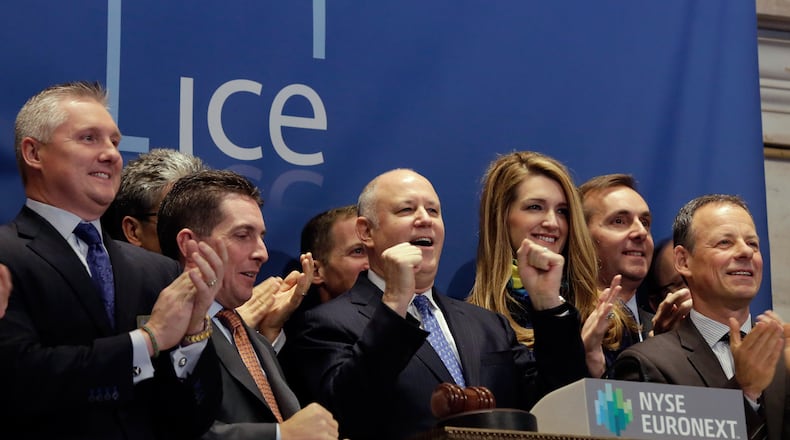The ink on its $11 billion purchase of the company that owned the New York Stock Exchange is barely dry, but Atlanta-based IntercontinentalExchange has already signed on for its next challenge.
The company is buying the Singapore Mercantile Exchange for a reported $150 million, though ICE did not confirm the price.
ICE founder and CEO Jeff Sprecher said he approached owner Financial Technologies last spring and asked if they would be willing to sell.
“People are asking us to have a bigger footprint there,” Sprecher said in a conference call with analysts Tuesday. “I think there is a real growth opportunity.”
ICE has largely grown by acquisition, with more than a dozen in its 13-year history and has a presence in eight nations. Sprecher said the appeal of the Singapore purchase is in its infrastructure and its people.
It would take ICE three years to create a similar business on its own, he said.
“No one has the footprint that we have now,” he said. “No one would have thought years ago we could have actually rolled up the things we did the way we have … There has to be an element of trust that the winds of change are moving our way.”
The Singapore deal is expected to close by the end of the year.
Sprecher also said Tuesday it will finish separating the Euronext business from the just-purchased NYSE Euronext by the middle of next year. That deal gave ICE ownership of the venerable New York Stock Exchange and other businesses.
ICE plans to keep the London-based futures exchange Liffe, the stock exchange and some other businesses, but will only hold on to a portion of Euronext. That business is expected to become a public company on its own in 2014.
ICE intends to sell standalone technology businesses like the buy-side/sell-side network NYFIX, the fixed messaging technology Appia, the data software business Wombat, the data dissemination business SuperFeed, plus other small businesses, Sprecher said.
“We’ve come to the conclusion that the best way to grow these assets is to find a new home for them,” he said. “There’s things honestly that I don’t understand, and that my colleagues here don’t really understand, and I just don’t think we should be in businesses that we don’t really understand.”
“We don’t even understand them well enough to know whether or not we’re going to look like idiots in five years,” he said.
Euronext and the for-sale businesses have about 1,400 employees, out of 4,100 employees of ICE. After they are spun off, ICE will employ 2,600 or 2,700 people.
Chief financial officer Scott Hill said in the call that ICE expects to save $500 million in operating costs through the unit sales as well as cutting corporate officer redundancies, organizational restructuring, real estate move and technology integration.
The purchase is expected to boost profit 20 percent in 2014. Along the way, Hill said, ICE will continue to make investments like the Singapore exchange.
With the acquisition, ICE’s market capitalization climbs to $23 billion. ICE now operates 16 global exchanges and five central clearing houses. On the exchanges, it acts like eBay, matching buyers and sellers. The clearing houses are a PayPal-like component of its business, where it makes sure that people making trades get paid.






